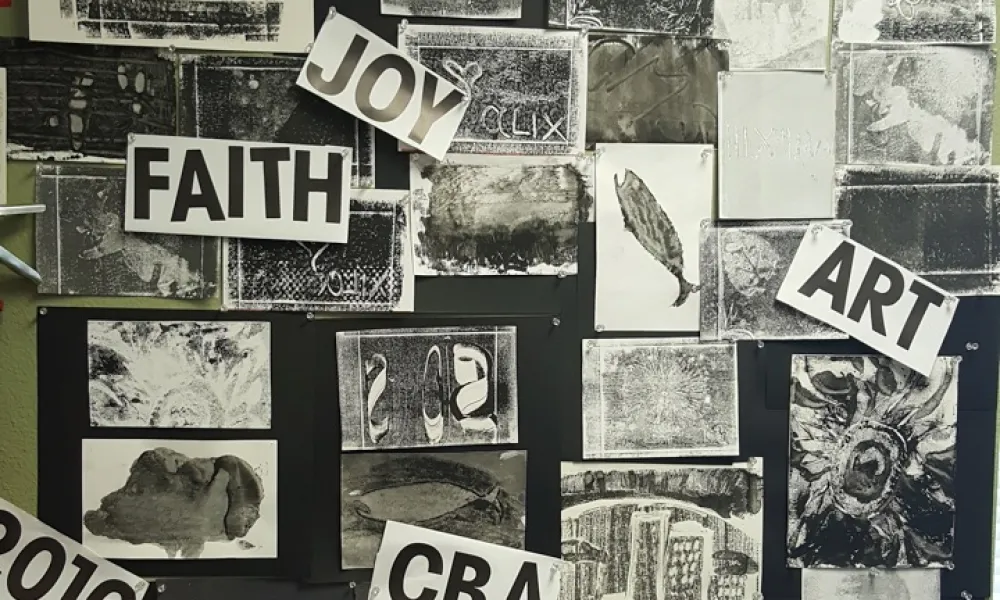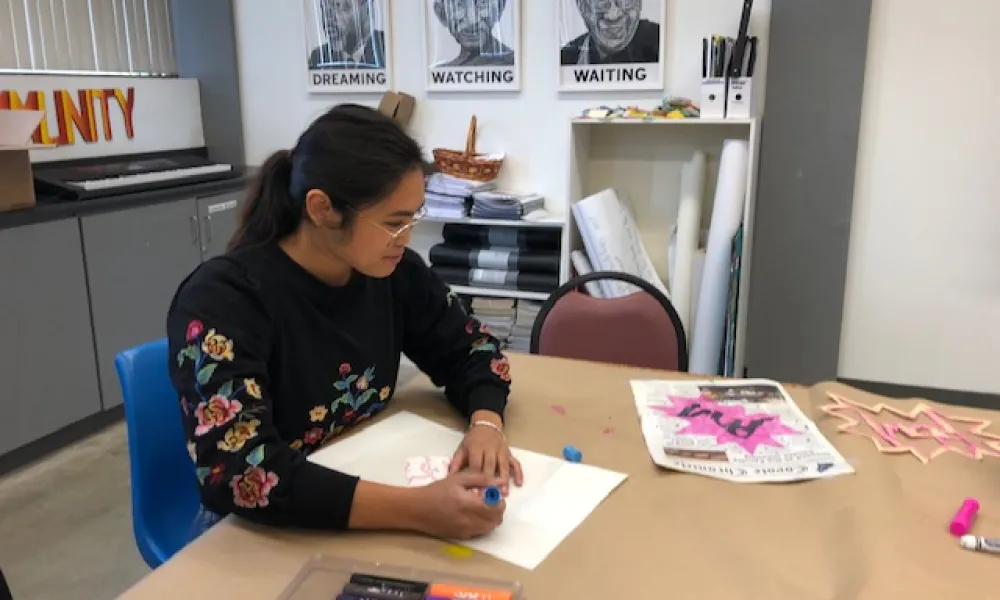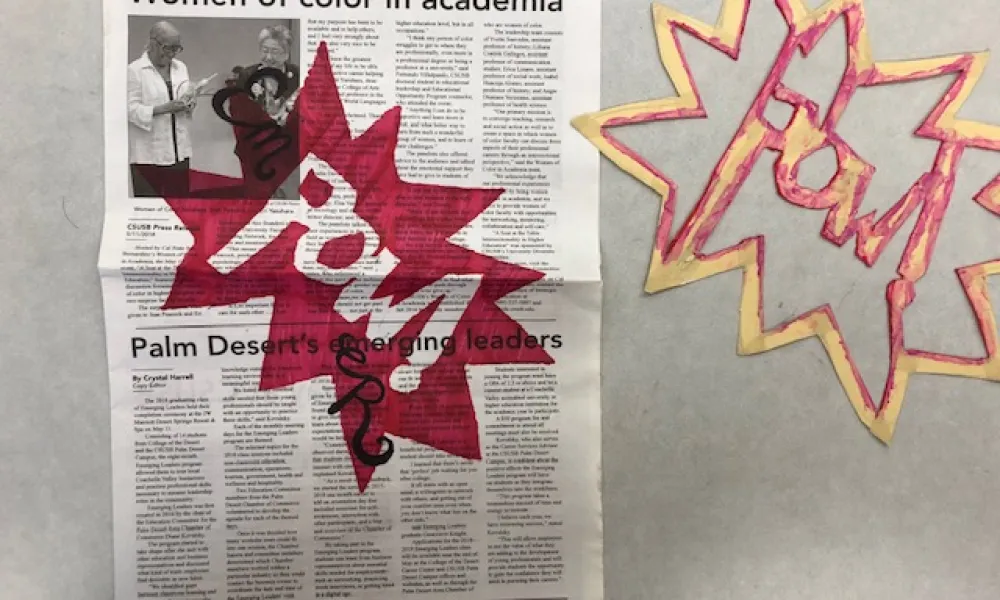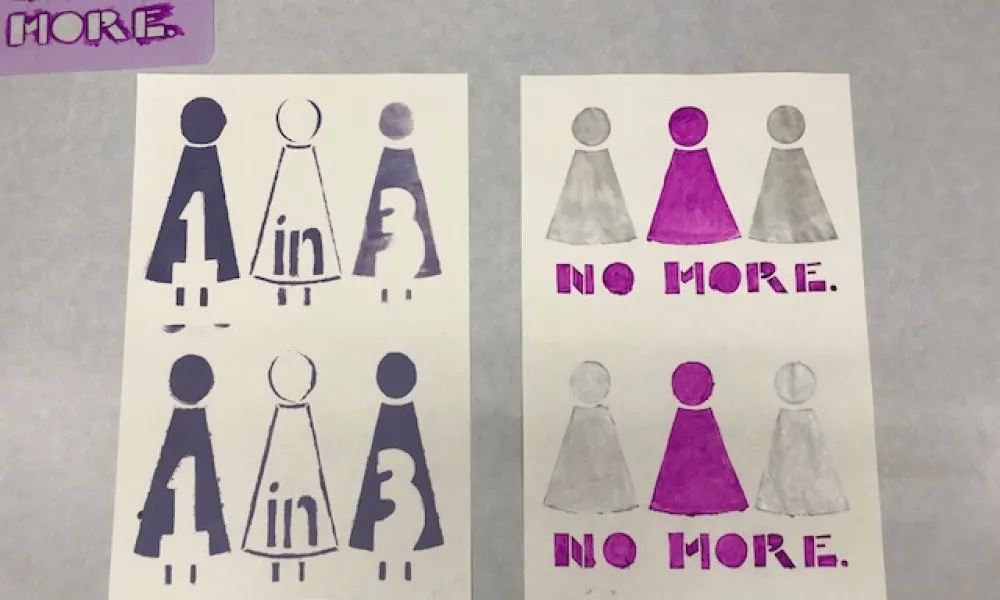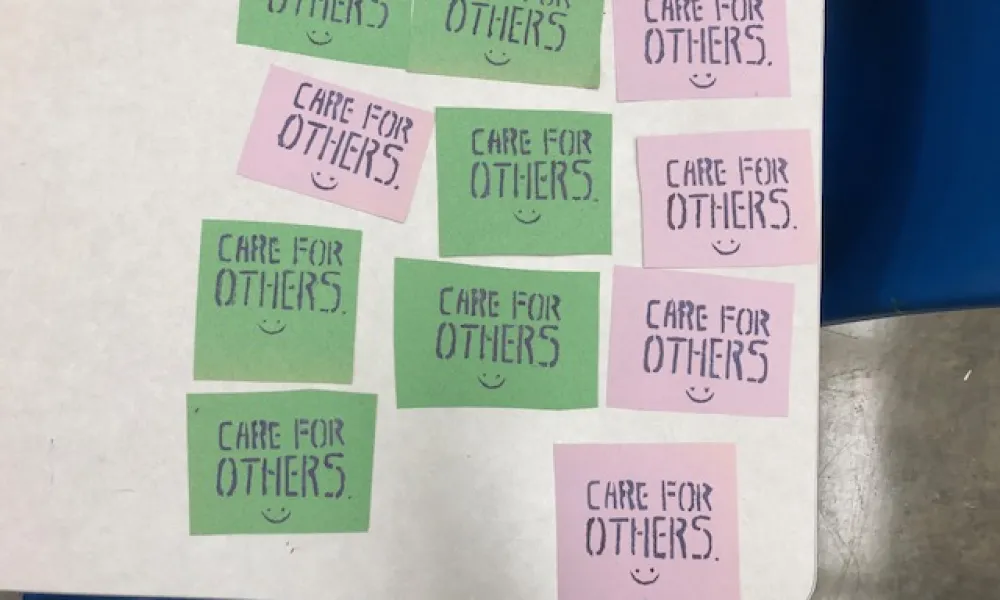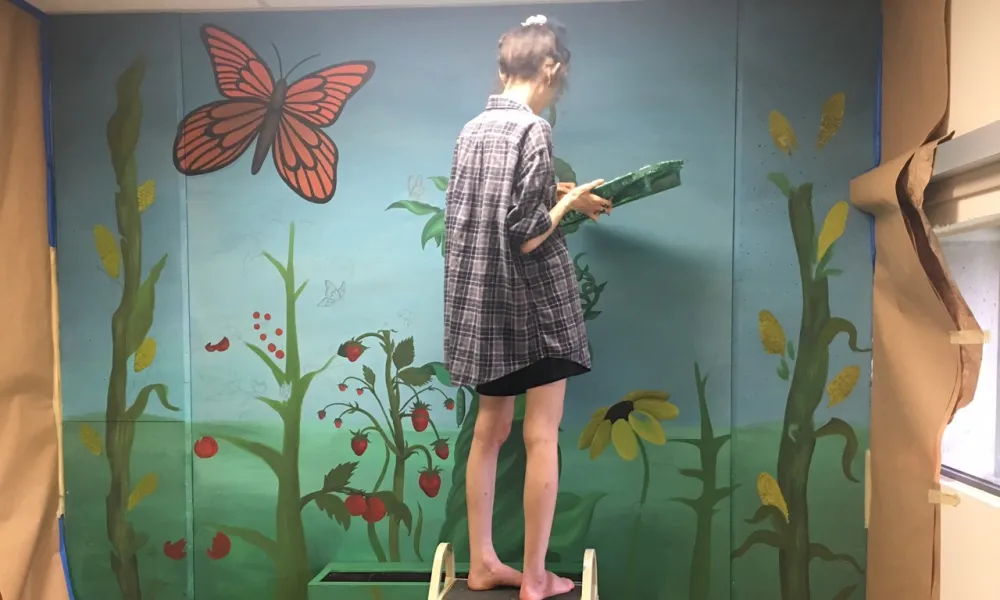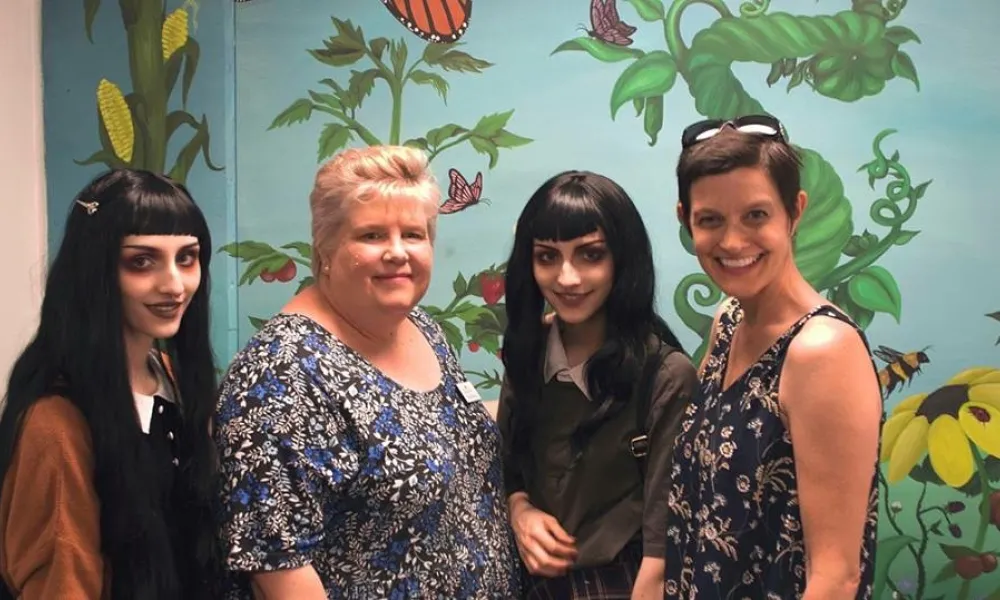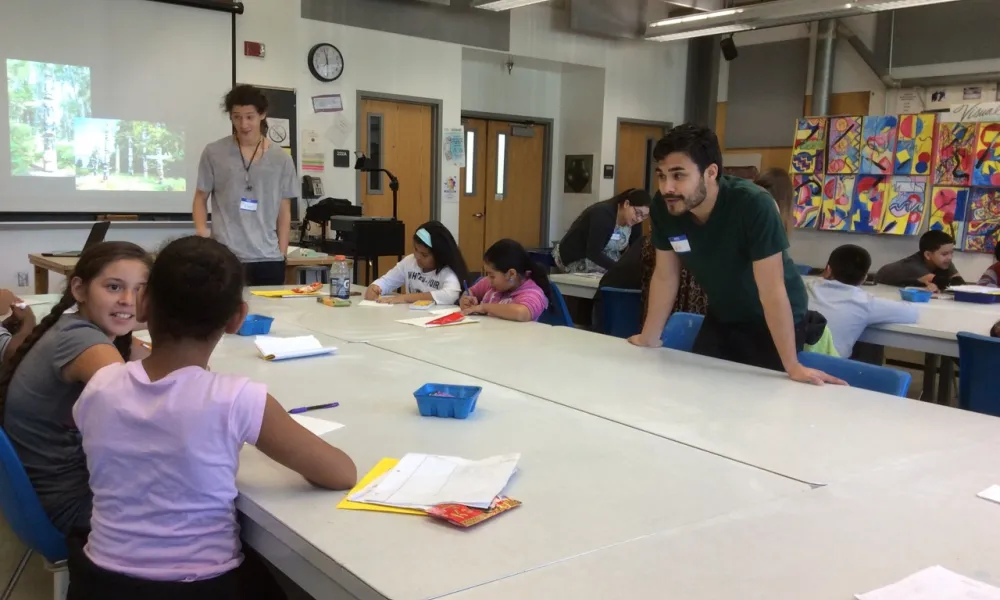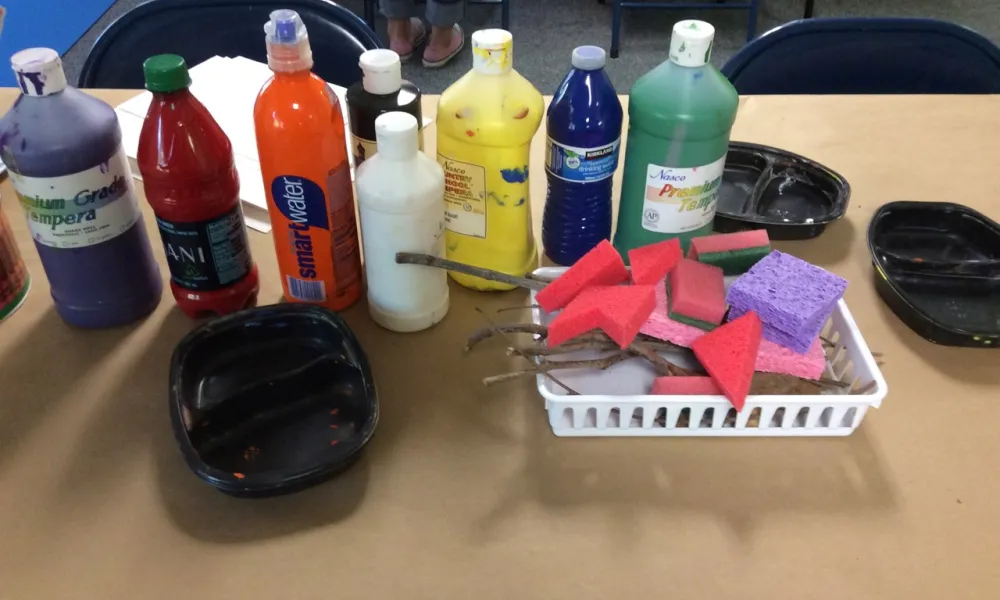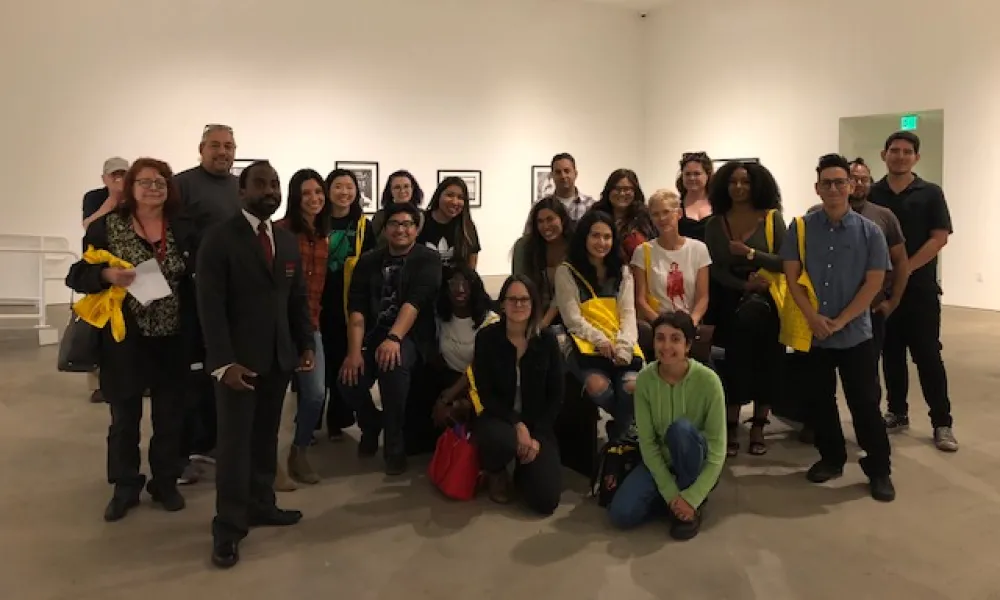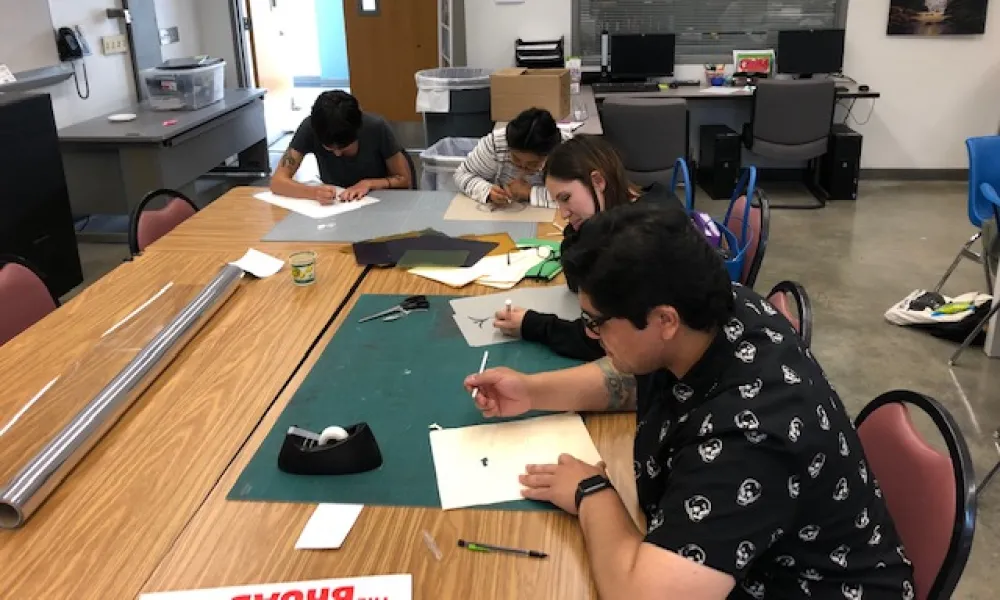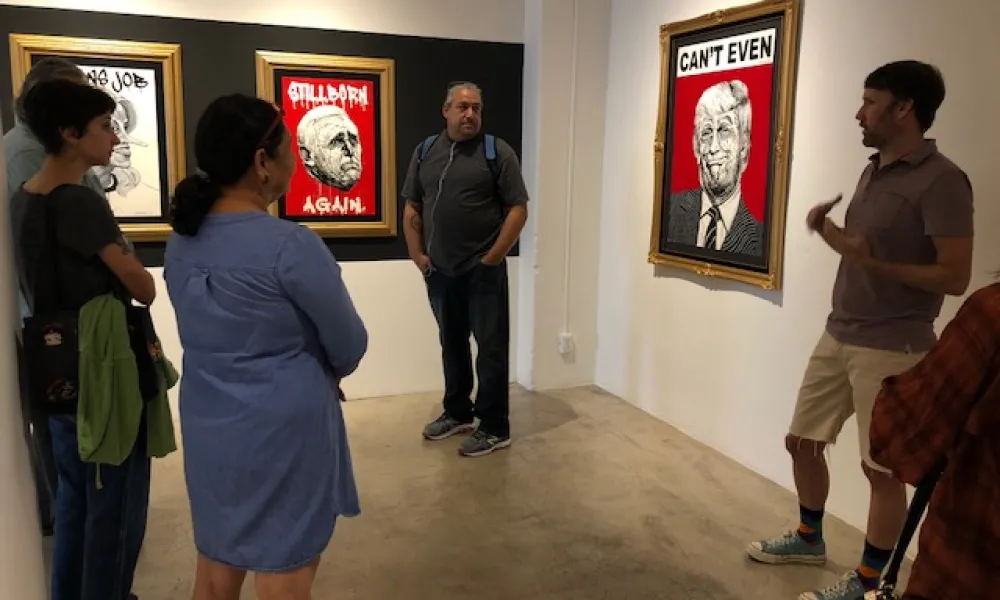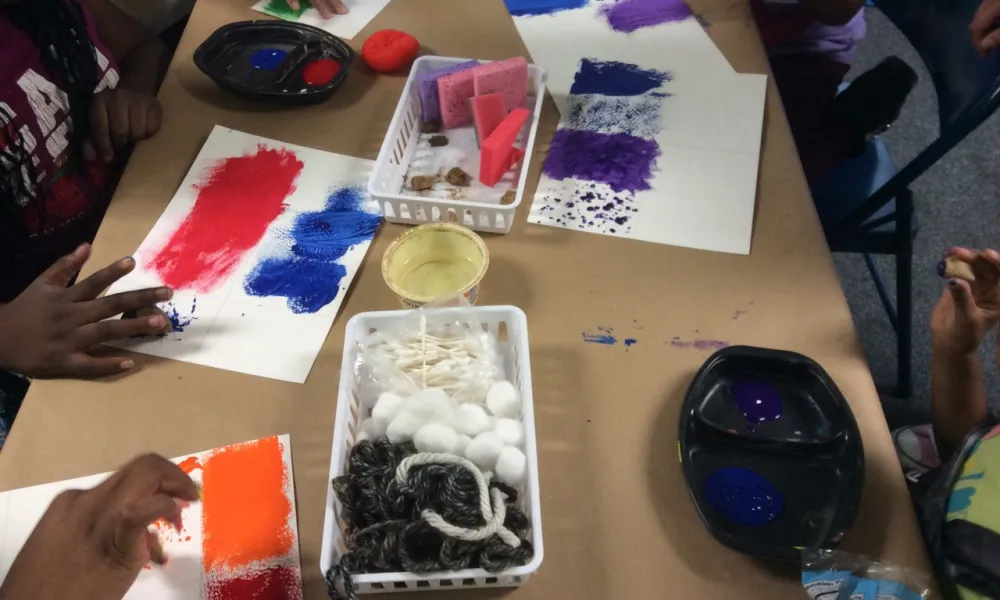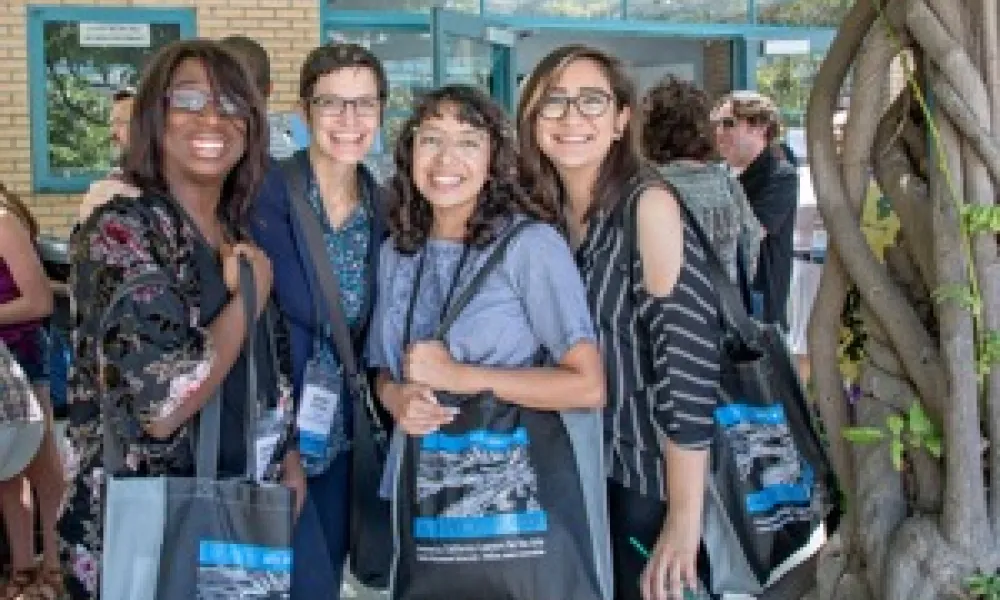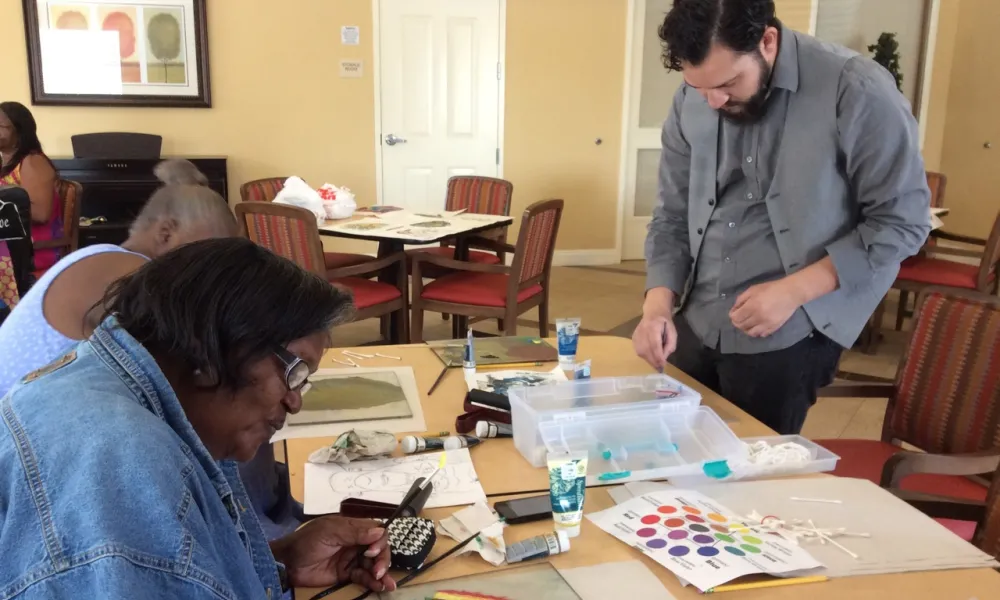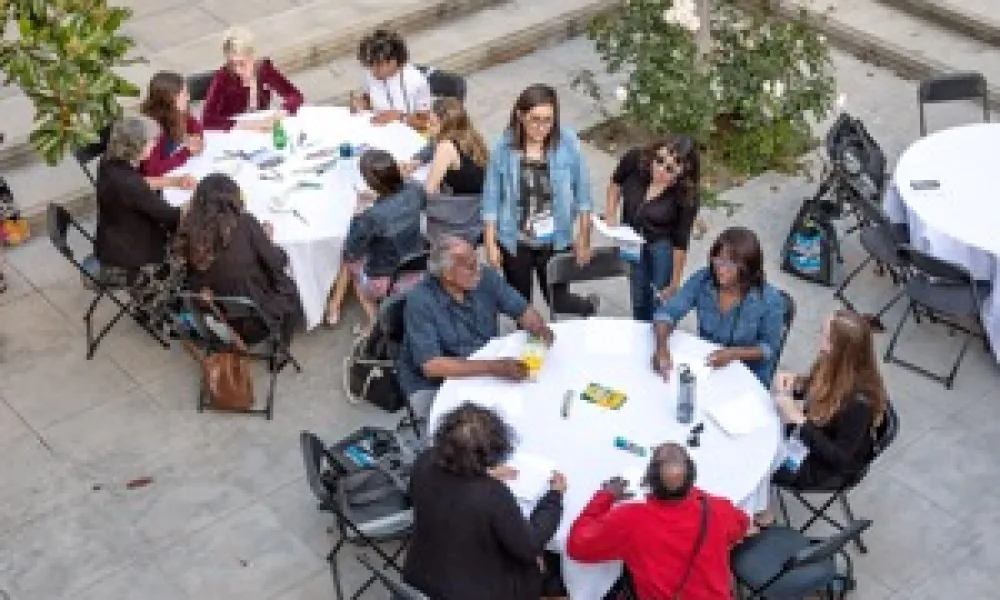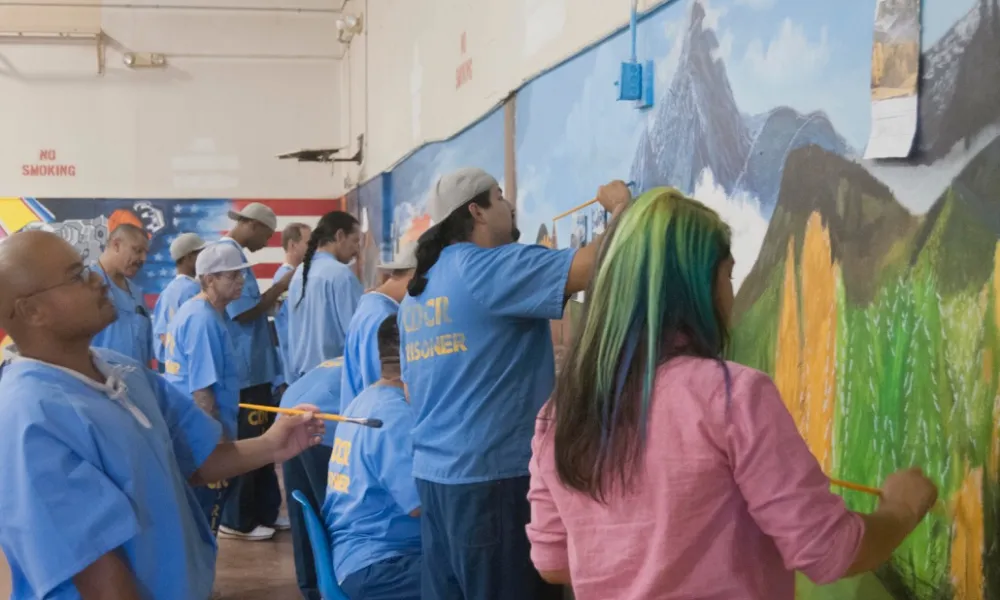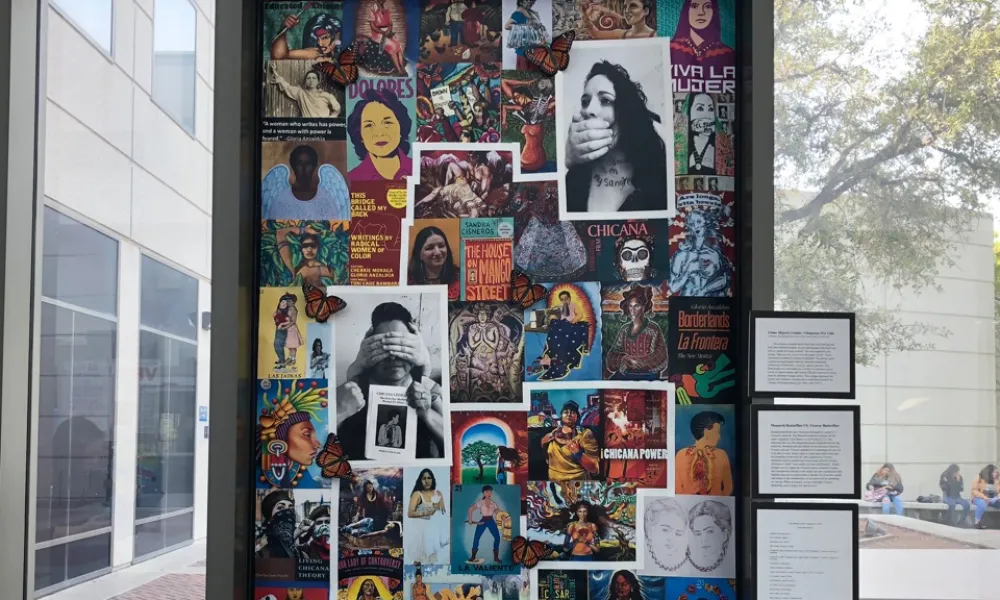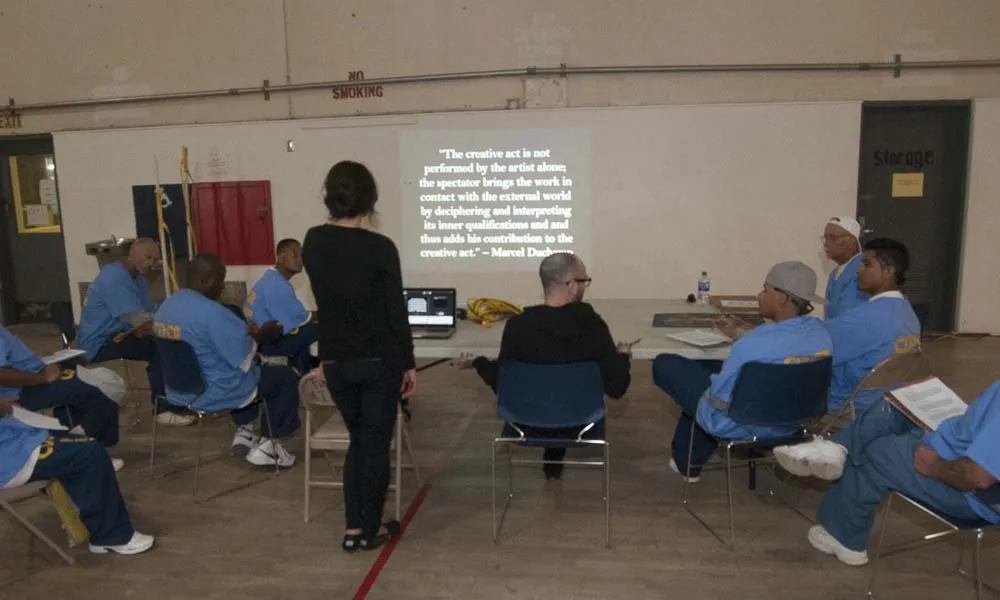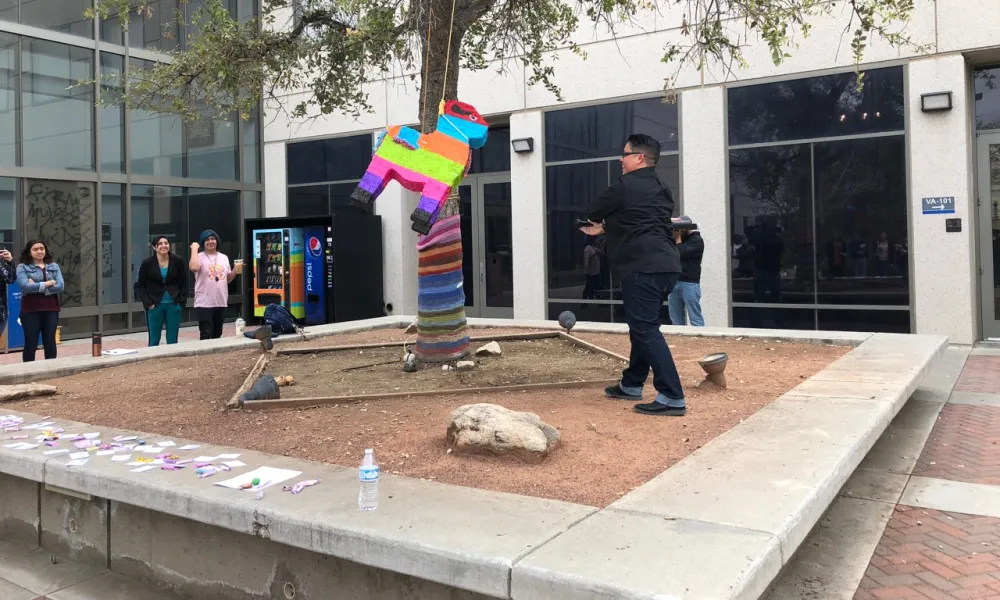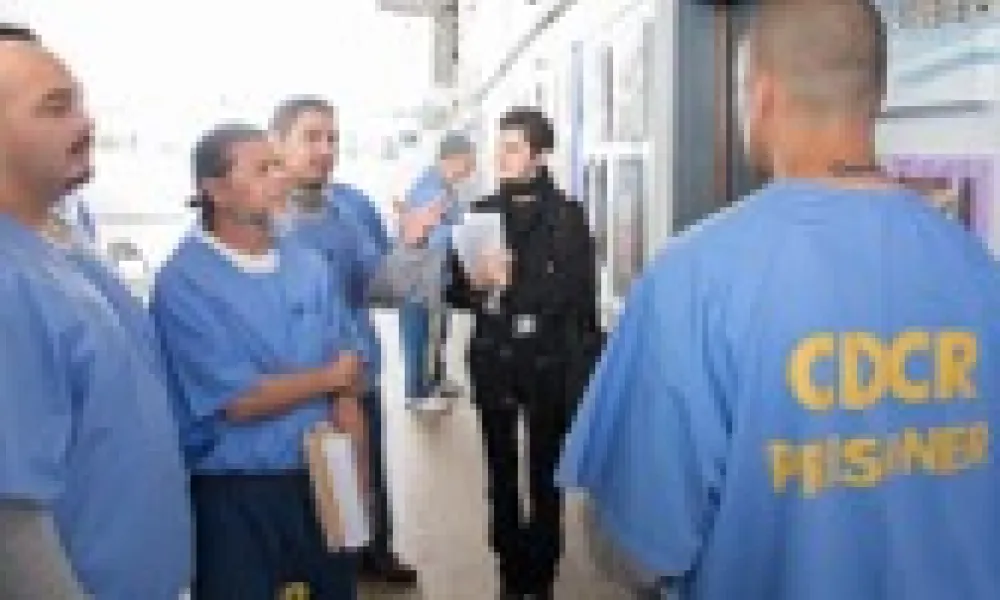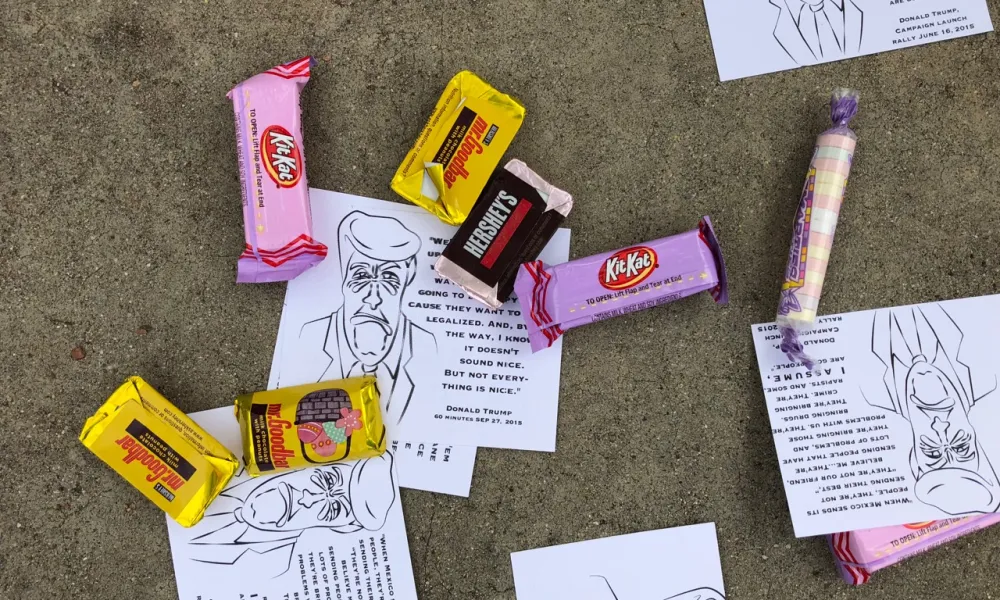Program Overview
We have a proud history of teaching future art educators, and many of our students have gone on to successfully complete the California Credentialling qualifications after completing the BA in Art, Art Education concentration. This degree offers a dynamic integration of theory and practice that prepares students to engage with art in the public sphere as well as preparing them to become art teachers in K-12 schools. Hundreds of teachers across Southern California are alumni of our program, contributing to their communities in a myriad of ways.
This contemporary and multidisciplinary course of study empowers students to investigate interconnections between art, pedagogy, community engagement and social justice. This degree prepares students for careers in art education, arts administration, community arts, and socially-engaged practices. It prepares students for further study in fields such as Art Education, Fine Art, Social Practice, Art Therapy, and Arts Leadership. Courses in the major emphasize active learning, engaged curiosity, collaboration, and creative practice.
